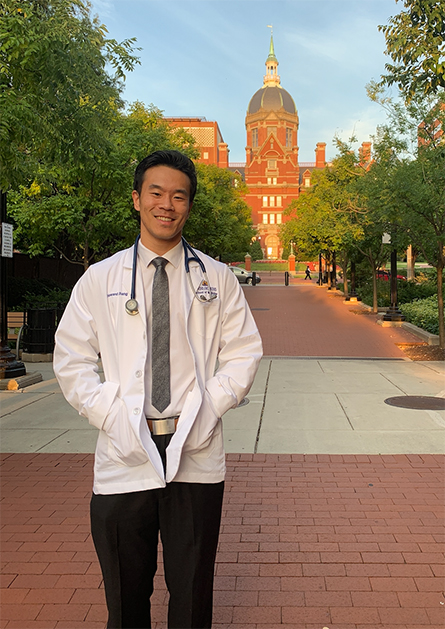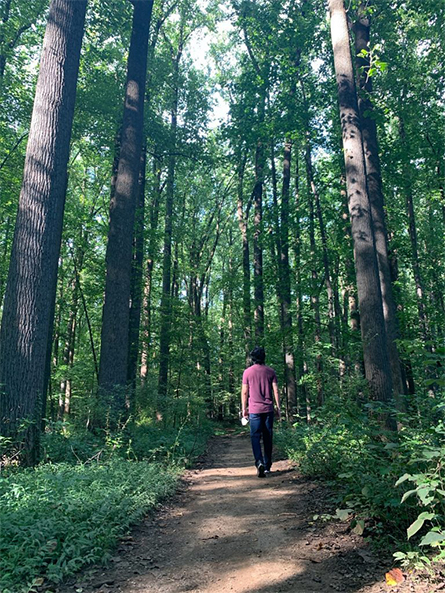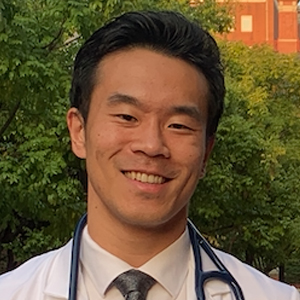Walking through this pandemic
This year my movements have been restricted more than any other time in my life. Physical distancing mandates have made it challenging to exercise.

on Sept. 10, 2019.
When the gyms shut down, I quickly adopted a resistance band workout routine at home that has been a sufficient substitute for strength training with weights. But I worried about finding a form of cardiovascular exercise that was both sustainable and enjoyable. Years ago, I tried high-intensity interval training, but I could only keep it up for a few months. I usually play basketball.
I noticed that the pandemic seemed to spare outdoor runners and walkers. I have never enjoyed outdoor running, so I decided to try regular walking. I was hesitant at first. I prefer working up a sweat to burn calories more efficiently, so I thought walking was a waste of time. Nothing was further from the truth. Since I started walking regularly in the summer, I have found that this simple form of exercise offers unique benefits.
1. It's easy to do, and to stick with.
I can walk virtually anywhere: outdoors, indoors and even in my home. It is affordable, requiring no memberships or special equipment other than a comfortable pair of shoes. And it takes little physical and mental discipline to get up and take a walk — for my science friends, the activation energy required to get out and walk is one of the lowest among exercises.
Arguably, the most important component of exercise is consistency. A strenuous regimen that quickly burns calories does little good in the long term if it is too challenging to maintain. Consistency is easier to achieve with exercises such as walking that do not overtax the central nervous system or impair muscle recovery.
Walking is also safer than running, an important consideration for those who have preexisting injuries or who must take precautions when exercising. Few things are more demoralizing to athletes and exercisers than injuries that stop them from doing what they enjoy. Preventing injuries is crucial to long-term exercise success.
2. It's effective for fat loss, cardiovascular health and appetite control.
I'll be frank: I used to look down on walking as a form of exercise because I didn't think it was effective enough. From my days as a high school athlete, I bought fully into the mantra "No pain, no gain." Walking may not build stamina and endurance as well as strenuous cardio, but don't underestimate its benefits for fat loss and cardiovascular health. Again, sustained consistent walking is a powerful way to achieve favorable long-term health outcomes.

would have experienced if he only exercised at the gym.
An immediate benefit I noticed was that regular walking did not ramp up my appetite. Strenuous cardio tended to deplete my energy, so I would compensate by overeating. I was also prone to rewarding myself with unhealthy foods after intense exercise. Walking is quality exercise that doesn't stoke the flames of hunger — the Achilles' heel of most arduous exercise plans.
3. Its possibilities are limitless.
Within reason, walking knows no bounds — mentally and geographically.
Mindful walking, particularly when implemented within the immersion in the natural world known as forest bathing, is a meditative practice that brings physical, mental and emotional health benefits.
This summer, I walked around my neighborhood several times each week while listening to podcasts or talks. I began to see these walks as incredibly efficient uses of my time — I was simultaneously learning and benefiting from my listening material, resting and relaxing due to the sights and sounds around me and, obviously, exercising.
Walking has led me to some beautiful sights that I never would have experienced if I only exercised in the confines of my local gym. I spent a day walking through the incredible Huntington Botanical Gardens in California near my hometown, and I recently hiked in Patapsco Valley State Park in Maryland for the first time.
I also never realized until my long summer walks how beautiful my Baltimore neighborhood truly is.
Walking has helped me see what I've been missing both around me and within me. Since I started walking, I have developed a healthier relationship with exercise. I am now less attached to immediate results and more interested in enjoying the experience. With walking, the results come in time — through consistency — and I am already beginning to gather the fruits.
This essay was adapted from an entry on Biomedical Odyssey, a blog about life at the Johns Hopkins School of Medicine. Read the original here.
Enjoy reading ASBMB Today?
Become a member to receive the print edition four times a year and the digital edition monthly.
Learn moreGet the latest from ASBMB Today
Enter your email address, and we’ll send you a weekly email with recent articles, interviews and more.
Latest in Opinions
Opinions highlights or most popular articles

Women’s health cannot leave rare diseases behind
A physician living with lymphangioleiomyomatosis and a basic scientist explain why patient-driven, trial-ready research is essential to turning momentum into meaningful progress.

Making my spicy brain work for me
Researcher Reid Blanchett reflects on her journey navigating mental health struggles through graduate school. She found a new path in bioinformatics, proving that science can be flexible, forgiving and full of second chances.

The tortoise wins: How slowing down saved my Ph.D.
Graduate student Amy Bounds reflects on how slowing down in the lab not only improved her relationship with work but also made her a more productive scientist.

How pediatric cataracts shaped my scientific journey
Undergraduate student Grace Jones shares how she transformed her childhood cataract diagnosis into a scientific purpose. She explores how biochemistry can bring a clearer vision to others, and how personal history can shape discovery.

Debugging my code and teaching with ChatGPT
AI tools like ChatGPT have changed the way an assistant professor teaches and does research. But, he asserts that real growth still comes from struggle, and educators must help students use AI wisely — as scaffolds, not shortcuts.

AI in the lab: The power of smarter questions
An assistant professor discusses AI's evolution from a buzzword to a trusted research partner. It helps streamline reviews, troubleshoot code, save time and spark ideas, but its success relies on combining AI with expertise and critical thinking.

